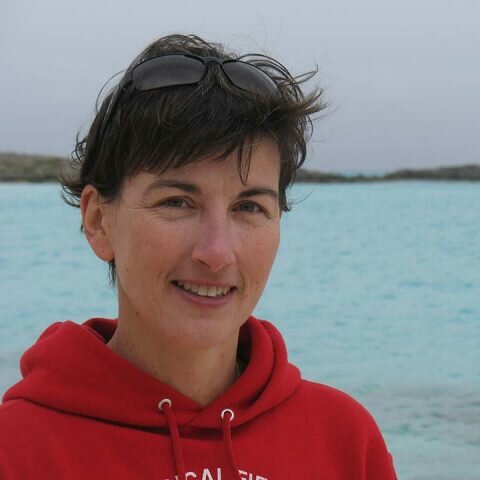
Isabelle M. Côté
Department of Biological Sciences, Simon Fraser University
This project aims to develop a general framework to inform sustainable ocean management and policy implementation in Canada by evaluating ecosystem resilience to multiple stressors that consider spatial and temporal scales. Researchers will build upon existing single-sector/single-species methods to include multiple stressors and human activities/impacts explicitly, even with incomplete knowledge or data, using a risk-based approach.
Canada’s coastal zone is under increasing natural and anthropogenic stress but integrated ecosystem management offers the potential to balance human activities with ecosystem resilience to allow sustainable use. This goal requires understanding how ecosystem services respond to both single and multiple stressors, and addresses the need to generate robust indicators sensitive enough to identify when potential ecosystem tipping points are reached or crossed.
Working in consultation with other project teams, we will evaluate how well multiple stressor impacts on ecosystem resilience (or structure and function) have been captured in current assessment frameworks, especially when different stressors have different spatial and temporal scales, potentially confounding understanding of overall significance and risk. We will use a multi-step approach: i) review prior formal assessment approaches used within key focus regions; ii) cross-reference existing ecosystem indicators within these studies and identify gaps; and iii) develop a generalized framework to link ecosystem resilience and multiple stressors that can be broadly applied, initially for area-based to bioregional-scale assessment. The survey in (i) will be complemented by a parallel socio-economic analysis on the degree to which factors other than ecological criteria were incorporated into prior assessments. This analysis will capture the specific ocean management objectives that were initial drivers for the evaluations, and feed into the framework we will develop in (iii). We will then use enhanced knowledge on how to evaluate stressors, stemming from CHONe II projects, to evaluate this framework, identify gaps, and prioritize management needs which can then be used to refine the framework for application in Canada. This project presents a unique opportunity to build on studies of multiple stressor impacts in Canada’s coastal zones (subtheme 2.1) and mechanistic understanding of them (subtheme 2.2), to inform management decision-making frameworks (Theme 1). Our overarching objective will be to provide the means to capture both short- and long-term stressors, and to identify acute and chronic impacts in environmental assessment frameworks.
The initial concept for a conceptual framework integrating multiple stressor responses and tipping points is completed.
Spatially and temporally explicit maps of the extent of significant ecosystem activities and stressors in Canadian marine ecosystems with an emphasis in Northern Shelf Bioregion and Gulf of St Lawrence is in progress.
A review of current assessment frameworks for ecosystem-based management or decision making that highlights the strengths and weaknesses of each and the degree to which they are used by Canadian Ocean Managers is in progress.
A review of how socioeconomic values are captured (or not) in existing assessment frameworks in progress.
A library of generalized Pathways of Effects (PoEs) that could be applied to other regions is in progress.
An integrated framework to inform sustainable ocean management and policy implementation in Canada by evaluating ecosystem resilience to multiple stressors that consider spatial and temporal scales is in progress.
Cancel